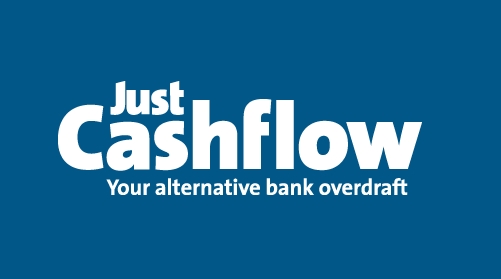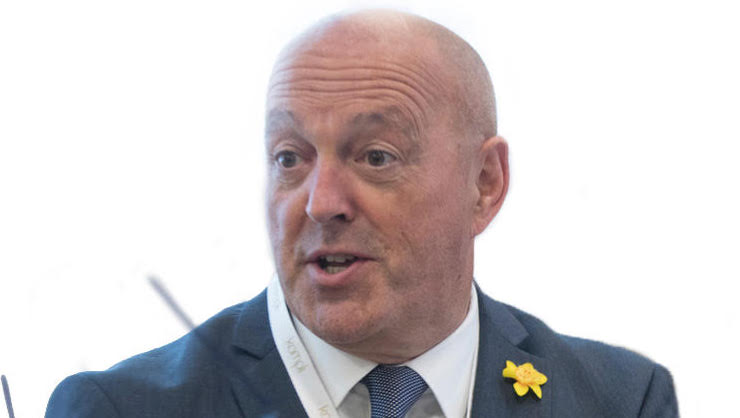John Davies is Executive Chairman of Alternative Lender Just Cash FLow PLC that partners with well run businesses by providing fast flexible financial help to ensure sustainable and long term growth and prosperity.

As someone with four decades of experience of running businesses or helping them to invest and grow I keep getting asked about what the impact of the Covid-19 crisis is going to have on UK SMEs.
I almost immediately always quote former Intel CEO Andy Grove who famously said, “Bad companies are destroyed by crises; good companies survive them; great companies are improved by them.”
The Government has been praised for providing billions of pounds of support to SMEs – notably through its Coronavirus Interruption Business Loans Scheme and Bounce Back Loans. It has to be applauded for the level of support provided but the keyword in both schemes is ‘Loans’. Access to money doesn’t guarantee a company will survive and be successful in the future – far from it. Success depends on how they use the money to generate income to pay the interest and the eventual repayment of the loan.
My four decades of experience includes managing through recessions /market crashes and has taught me many lessons – some of them extremely painful. For example don’t be too dependent on one sector, supplier or customer. There are other lessons that I will refer to later in this article but the one I really want to focus on is the importance of ‘Adaptability’.
Our new customer, Wild Rose Couture, featured in SME Today earlier this week, is a great example of a business that quickly adapted to the challenges thrown up by Covid-19 and we were only too happy to finance the re-tooling of their business.
The temptation is to manage your business with your head down, doing what you’ve always done, desperately trying to maintain the status quo and not looking at what’s in front of you. There are a couple of classic examples that help illustrate my point.
The first is Kodak, a company that dominated the photographic film market during most of the 20th century. The company blew its chance to lead the digital photography revolution as they were in denial for too long. It was a Kodak engineer that actually invented the first digital camera back in 1975. However, because it was photography that didn’t involve a film Kodak’s reaction was – ‘great idea but let’s not tell anybody about it’. Management had its head down and was desperate to preserve the status quo and not do anything that would impact the demand for film. They missed the digital revolution and filed for bankruptcy in 2012.
A great example of a company that looks to the future and is willing and able to adapt is Netflix. The company started in 1997 and initially made money by selling and renting DVDs by mail. When DVD sales started to fall in 2006, Netflix could have continued to focus on improving its core business, but instead, it shifted its focus to developing a video-on-demand internet platform.
By 2010, it had become the largest source of Internet streaming traffic in the U.S. When the media companies it partners with for movies and TV shows started to plan their own online video businesses to compete with Netflix, the company then started creating its own exclusive series and films.
This ability to be adaptable and to look and understand what was in front of them has allowed them to constantly stay ahead of potential troubles and has enabled Netflix to continue growing. Today it operates in 190 countries with over 182 million subscribers.
I appreciate these are large companies with huge resources but their stories really help make my point. The final guidance I want to give is equally applicable to start-up companies and those that are already established and it involves what I call the forecasting trap.
Alternative lenders such as Just Cash Flow are in a privileged and responsible position as we get to see the plans of businesses keen to invest and grow. Many are well thought out, based on thorough planning, forecasting and assumptions. These businesses can really benefit from the range of tailored credit solutions we offer. However, we also have a responsibility to point out where plans fall short and provide valuable guidance on what should be factored in or thought through again.
One of the biggest traps relatively new businesses fall into is forecasting. ‘Return to sender, address unknown’ – the lyric from Elvis’ well know song could easily be the instruction for what some businesses should do with their forecasts. Continuing with the Elvis theme, did you know that there is an all-time high of around 85,000 Elvis impersonators in the world? This compares with just 170 in 1975 when he died. At this rate of growth experts predict that by 2020, Elvis impersonators will make up one third of the world’s population.
Anyone want to join me in setting up a quiff wig and false sideburns company? Of course this is a ludicrous extrapolation of a trend that makes statistical but not common sense. However, you would be surprised how many businesses make forecasts using statistical trends and are wedded to them for far too long.
When I started out in business I made exactly this mistake and quickly learnt that initial business projections about size of the market, rate of growth and potential share are inevitably wrong and should be revised at the first opportunity and then at regular intervals. Another trap is the commendable, but ill-founded optimism. You will have heard this, the total annual worldwide market for our product/service is £2 billion, we just have to capture 1 per cent and that is £20 million. The rest of the plan is largely built around the estimated cost of production and a healthy margin that can be made. Often these costs are taken from a rival supplier with the optimistic assumption you will be able to undercut them by 10 percent.
We are all going to be wrestling with the impact Covid-19 has on our personal and business lives for a considerable time – but I firmly believe that those businesses that are prepared to be adaptable and embrace change will be successful in the future.
I hope my sharing of ‘lessons learnt’ helps you in your journey.
Just Cashflow offers an alternative to a bank overdraft or business loan with up to a £2M funding solution supporting business growth, to find out more visit our website. Just CashFlow


